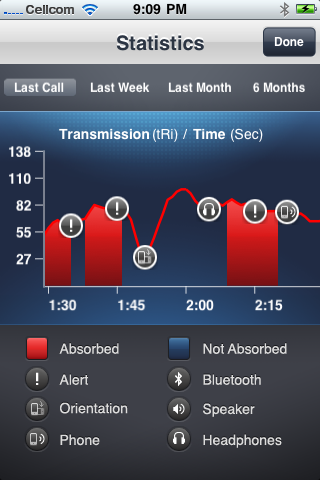
This past week, Apple rejected yet another seemingly offensive iPhone app: Smuggle Truck. The app originally asked players to smuggle an immigrant-filled truck across the desert--a satiric take on the struggles of immigrants designed to raise awareness about immigration issues, according to the game's developers. Apple didn't get the joke, though, so the Smuggle Truck team changed the app's name to "Snuggle Truck" and swapped out immigrants for "a group of cuddly creatures escaping the wilderness for the comfort of the zoo, where they are provided plenty of food, shelter, and state of the art health care." The promised zoo, if you will.
[youtube mSs0MkUsC_4]
The whole debacle got us thinking: is there actually some moral compass by which Apple decides apps are too offensive for the public to handle (besides what is written in the app store guidelines)? When does an app cross the line over to what Apple calls "offensive or mean-spirited commentary"? Below, we look at some other "offensive" banned iPhone apps for guideposts.
Baby Shaker
This one is pretty bad. The Baby Shaker app, which was approved and then quickly pulled from the app store in 2009, implores users to stop an on-screen baby from crying by shaking their iPhone until two red x's cover the baby's eyes. Simulating infanticide would have been almost guaranteed to incite riots against Apple if it hadn't moved quickly to ban the app.
Me So Holy
This banned app allowed users to take a picture of themselves with the iPhone camera and then stick it on the face of different religious figures. Stupid? Yes. A waste of time? Sure. But so are plenty of things in an app store filled with fart generators. In the grand scheme of banned apps, this one is pretty harmless.
[vimeo 4578705]
The Manhattan Declaration
It's not as if Apple always sides with religious communities in its banning decisions. Last year, Apple banned the Manhattan Declaration, a recently released manifesto from Protestant, Catholic, and Orthodox Christian leaders that "speaks in defense of the sanctity of life, traditional marriage, and religious liberty. It issues a clarion call to Christians to adhere firmly to their convictions in these three areas." The app does promote homophobia and pro-life sentiments--but it never suggests that pro-choice and gay rights advocates should be harmed. Is Apple pushing its own moral beliefs here?
Gay Cure
This banned app from Florida-based Christian ministry Exodus International goes a step further than the Manhattan Declaration, attempting to help turn gay people straight through "biblical teaching." It also received over 150,000 signatures from a petition asking Apple to ban it--a large enough number for Apple to realize that it might be in for some seriously bad press if it didn't make a move.

Tawkon
This banning seems more arbitrary than anything else. The seemingly legitimate (but banned) Tawkon app analyzes the radiation given off by the iPhone during calls and notifies users when radiation levels spike to the high end of the spectrum. It's not offensive--though it does promote fear. Assuming that it works, we can only guess that Apple banned it because it didn't want users to have this kind of information available. It could make them think twice about spend so much time playing around with cell phones, after all. And ultimately, Apple just wants people to keep calling, even if tumors are growing in their heads. Which they might be. Or might not be. Hard to say at this point.
This isn't a new complaint, of course. But in a world where everyone has a phone and every company and cause needs an app, shouldn't we have free exercise of speech and religion in the place where most of the apps are bought and sold? Apple has complete control over the kind of information you can get on your phone, and it exercises that right seemingly capriciously. We fought a revolution about that (and some tax stuff, too). Instead of taking up arms, though, all you need to do is switch to Android.
We put in a request to Apple to ask them if they want have some secret logic that connects all their app banning, but they're notoriously tight-lipped about what makes it into the app store.
If you're looking to make sure that your proposed app doesn't get banned, don't look to Apple for any reasonable guidelines, but remember: Don't get involved in religious or political debates, don't try to discourage users from using cell phones, and never, ever shake a baby. Feel free to help people dodge DUI checkpoints, though. In the world of Apple, pretend-smuggling a group of immigrants across the border apparently is worse than implicitly encouraging users to drive drunk.
[Photo Credit: Smuggle Truck, Tawkon]
Reach Ariel Schwartz via Twitter or email.
Read More: Most Innovative Companies: Apple